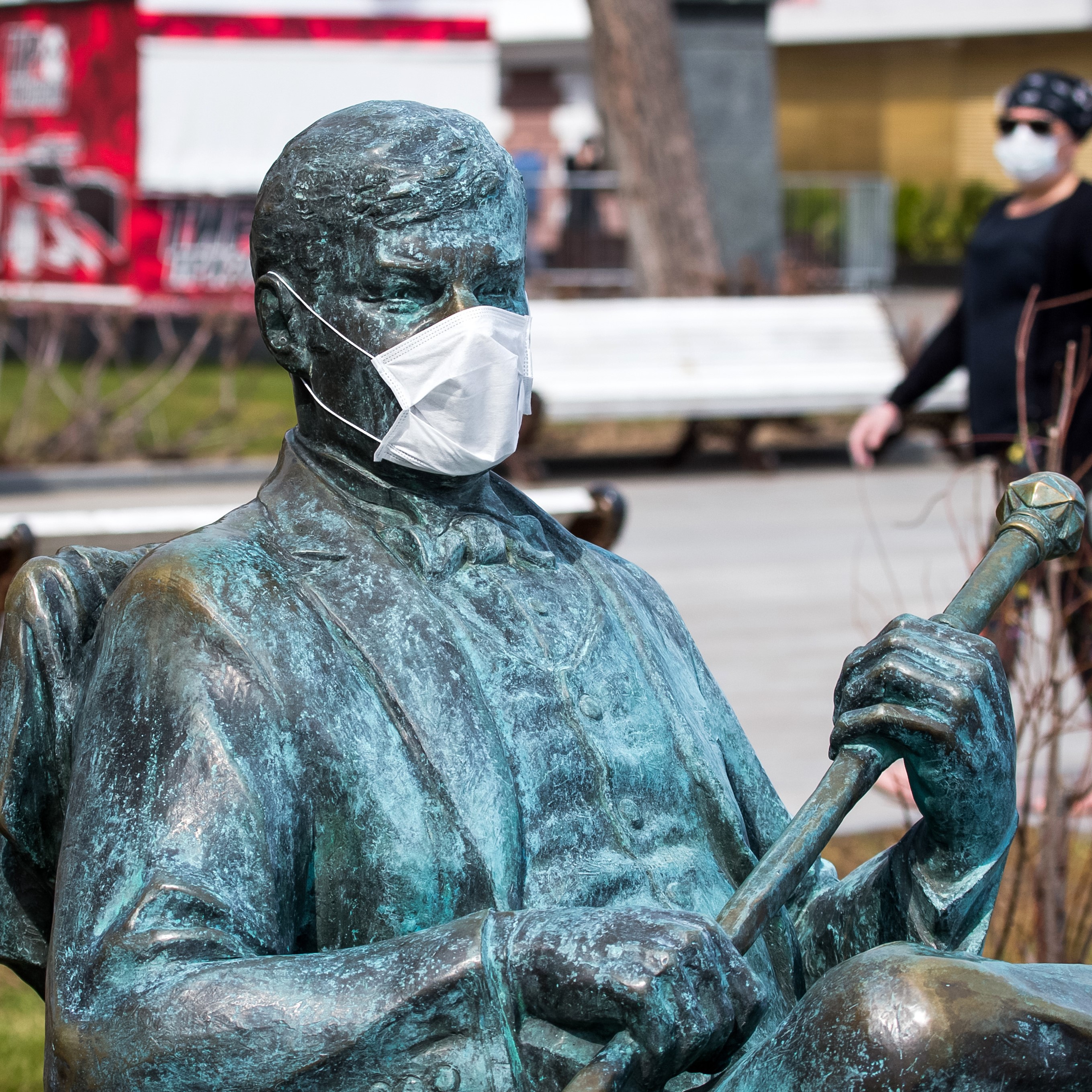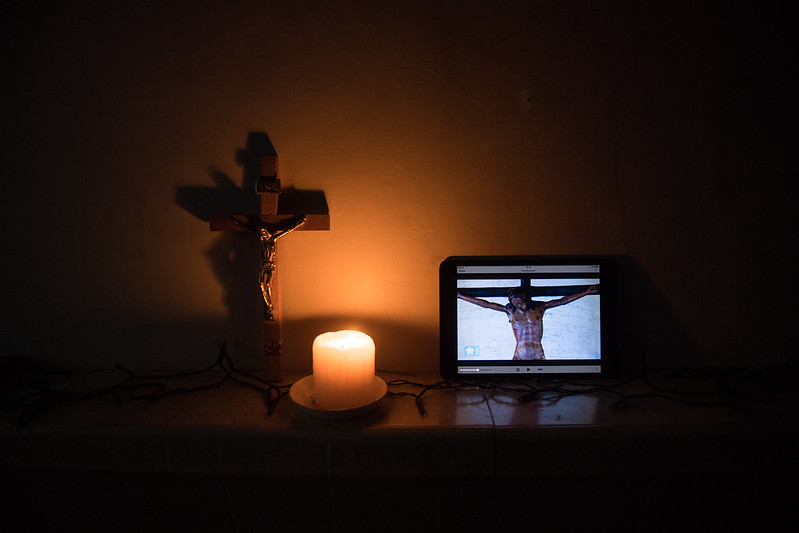In 1958, Angelo Giuseppe Roncalli was named Pope after 11 ballots. He took on the papal name of John XXIII and became known as “The Good Pope” for his commitment to the poor and the elderly.
In his last will and testament, he wrote: "Born poor, but of humble and respected folk, I am particularly happy to die poor.”
When speaking of the vulnerable and the elderly, the Good Pope said: “(They have) the right to be looked after in the event of ill health; disability stemming from his work; widowhood; old age; enforced unemployment; or whenever through no fault of his own he is deprived of the means of livelihood.”
It’s a plea that has taken on an acute relevance in the midst of the coronavirus pandemic, when some speak of the vulnerable and the elderly as though they are disposable.
When Pope John XXIII visited Rome's Regina Coeli prison, he told the inmates: "You could not come to me, so I came to you."
Priests all over the world are doing similar today in going out to their communities to visit the poor and the vulnerable and the elderly in the most trying of circumstances.
When Roncalli became Pope, he returned to his native Bergamo in Italy and told the waiting pilgrims: “Today, Bergamo has its pope.”
But today, Bergamo is losing its clergy. Bergamo is at the heart of the coronavirus pandemic and, as of writing, ten priests in northern Italy’s Bergamo have died, and at least 50 have died nationwide.
Father Giuseppe Berardelli was one of the now-deceased priests in Bergamo. Residents applauded from their windows and balconies as the coffin was taken for burial; there was no funeral for the priest.
An obituary of Father Berdardelli read: “He was a priest who listened to everyone, he knew how to listen, whoever turned to him knew that he could count on his help."
Francesco Beschi, the Bishop of Bergamo, told Italian TV news network Rainews24: “Our priests are many, and numerous are those who have exposed themselves (to the virus) to be close to their community. Their illness is an evident sign of closeness, a painful sign of closeness and sharing in the suffering.”
Bergamo accounts for 16 percent of Italy’s total number of infections, even though the city itself accounts for just 0.2 per cent of the country’s population. It is expected that 50 people will die daily in the region due to Covid-19.
Locals in the city say that coffins are beginning to pile up in the churches and morgues as there is nowhere to bury them.
James Martin SJ, editor at large of America Magazine, took to twitter recently to voice his fears that the coronavirus could disproportionately hit the priesthood.
The Jesuit priest said: “Priests, and women and men in religious orders, share in the suffering of humanity; we need to prepare for a far higher incidence of infection, and a higher mortality rate.”
The average age of priests in Ireland is around 70, a stark reminder of the issues facing the Church here. As of writing, the fatality rates for cases involving people aged between 70 and 79 is a worrying eight per cent.
The average age of priests can have further consequences on the health and well-being of the clergy. Fr Martin reminds us that many “elderly priests rely on cooks or housekeepers to help them with meals and cleaning; if these people are, like most people, unable to work, then the elderly priests' health will suffer as well.”
Fr Martin also notes that while many of us self-isolate, priests are as active as ever and are still overseeing funerals, weddings, and baptisms. Priests will also be in attendance at wakes, offering much needed comfort and solace in these confusing times.
In 2018, just five men entered Maynooth, Ireland’s national seminary. And last year, the Bishop of Ossory, Dermot Farrell, warned that the number of priests under the age of 75 will be halved over the next decade, a challenge that he says “cannot be ignored”.
Fr Martin concluded: “The church must prepare itself for this. In this, again, we participate in the sufferings of humanity and of Christ.”
But we as laypeople must prepare for this also. There is very clear guidance that no more than 100 people should attend religious services during this pandemic, and that we should maintain social distancing at such services.
Let us be mindful of this directive; for the good of our own health, for the good of our fellow congregants and our clergy, for the good of our Church.



 Loading ...
Loading ...
What do you think?
You can post as a subscriber user ...
User comments (0)